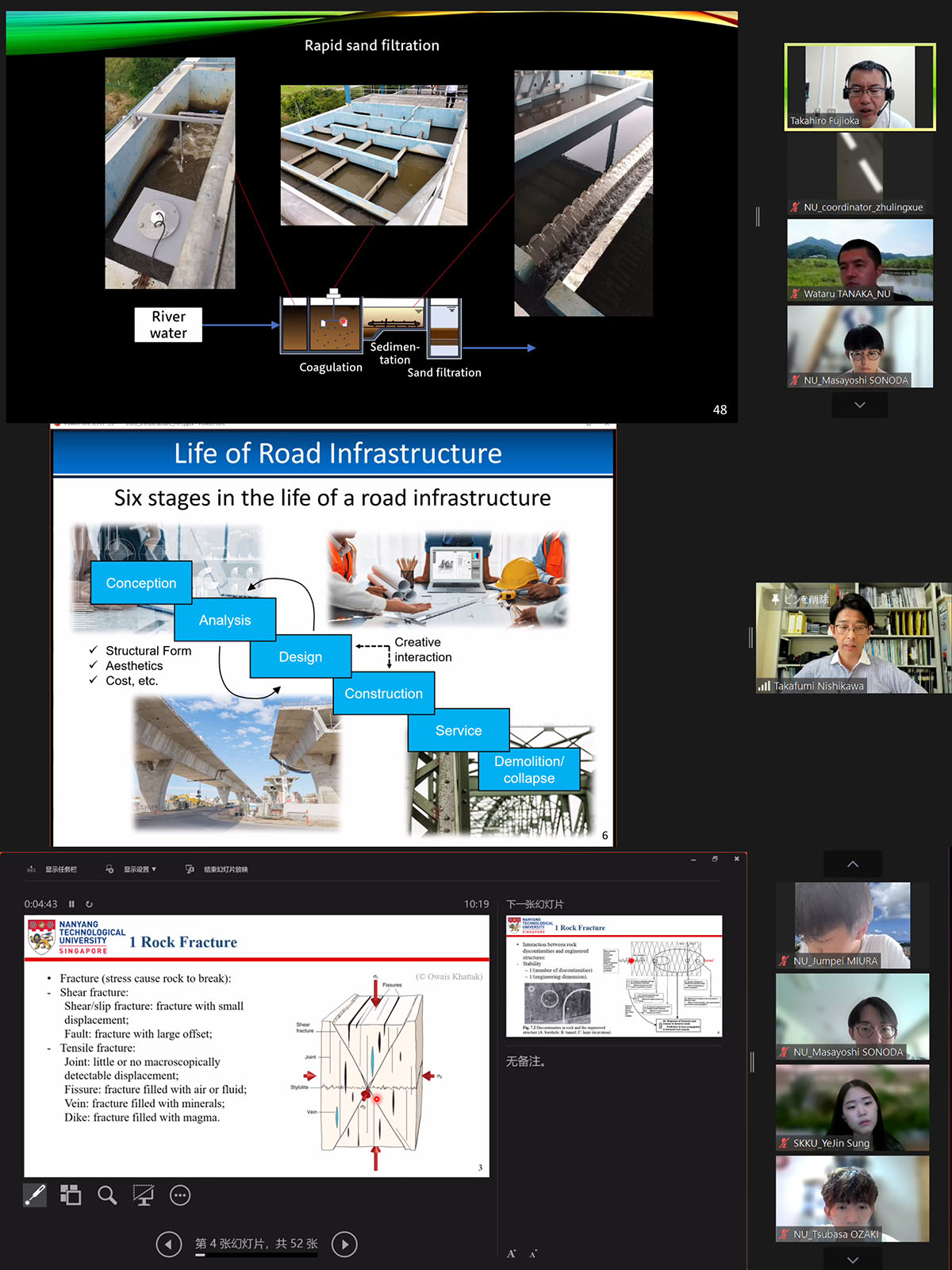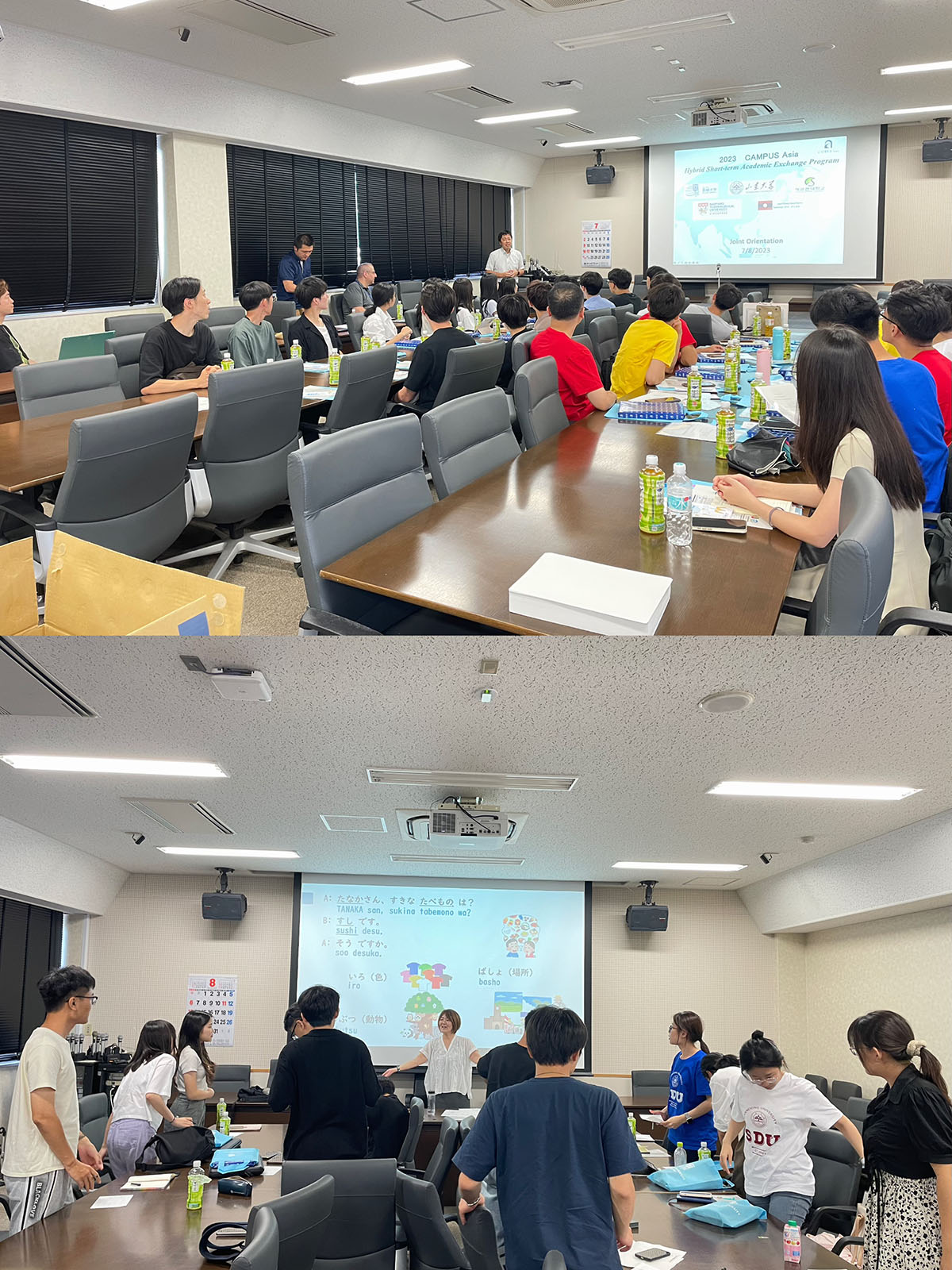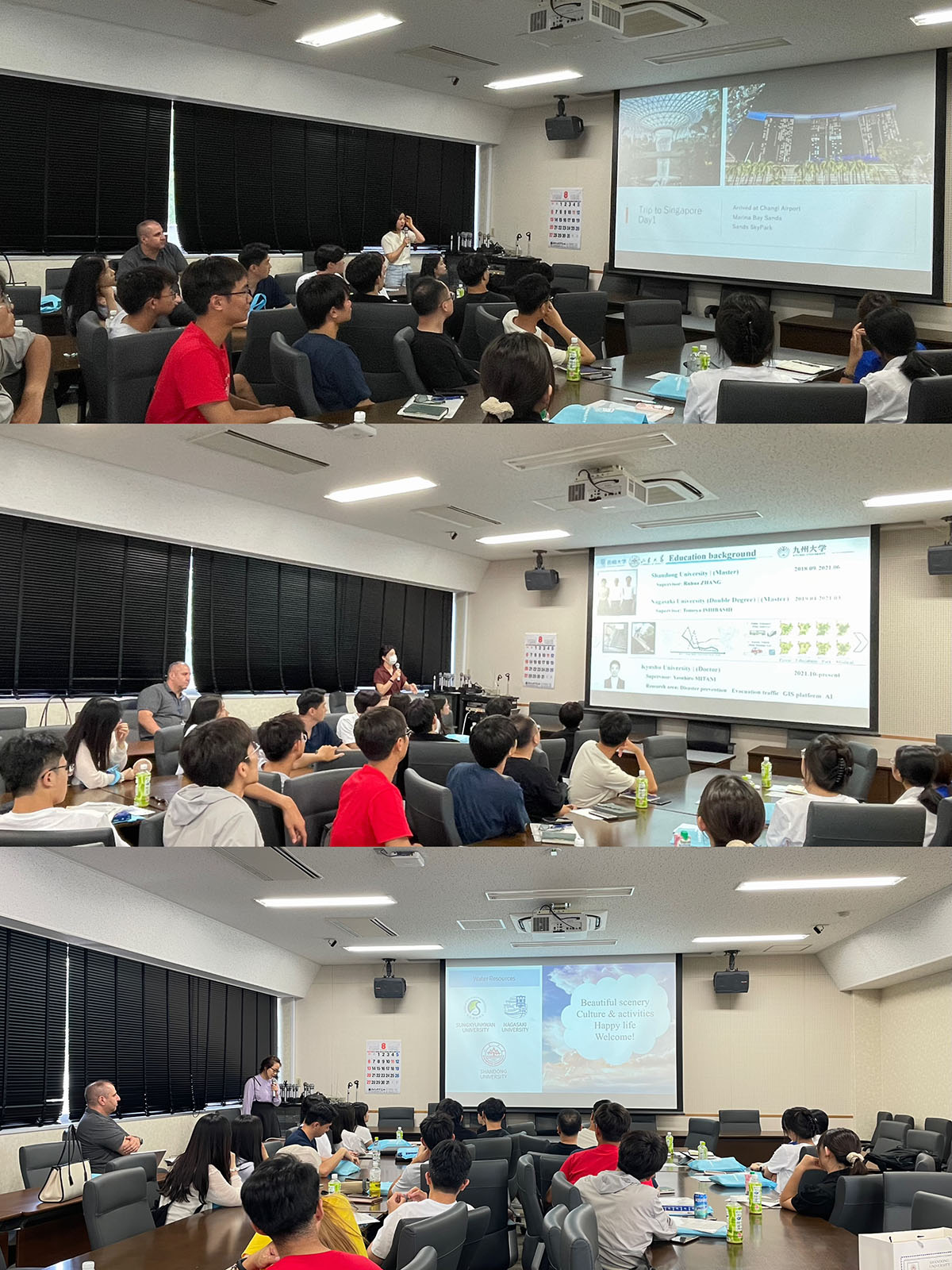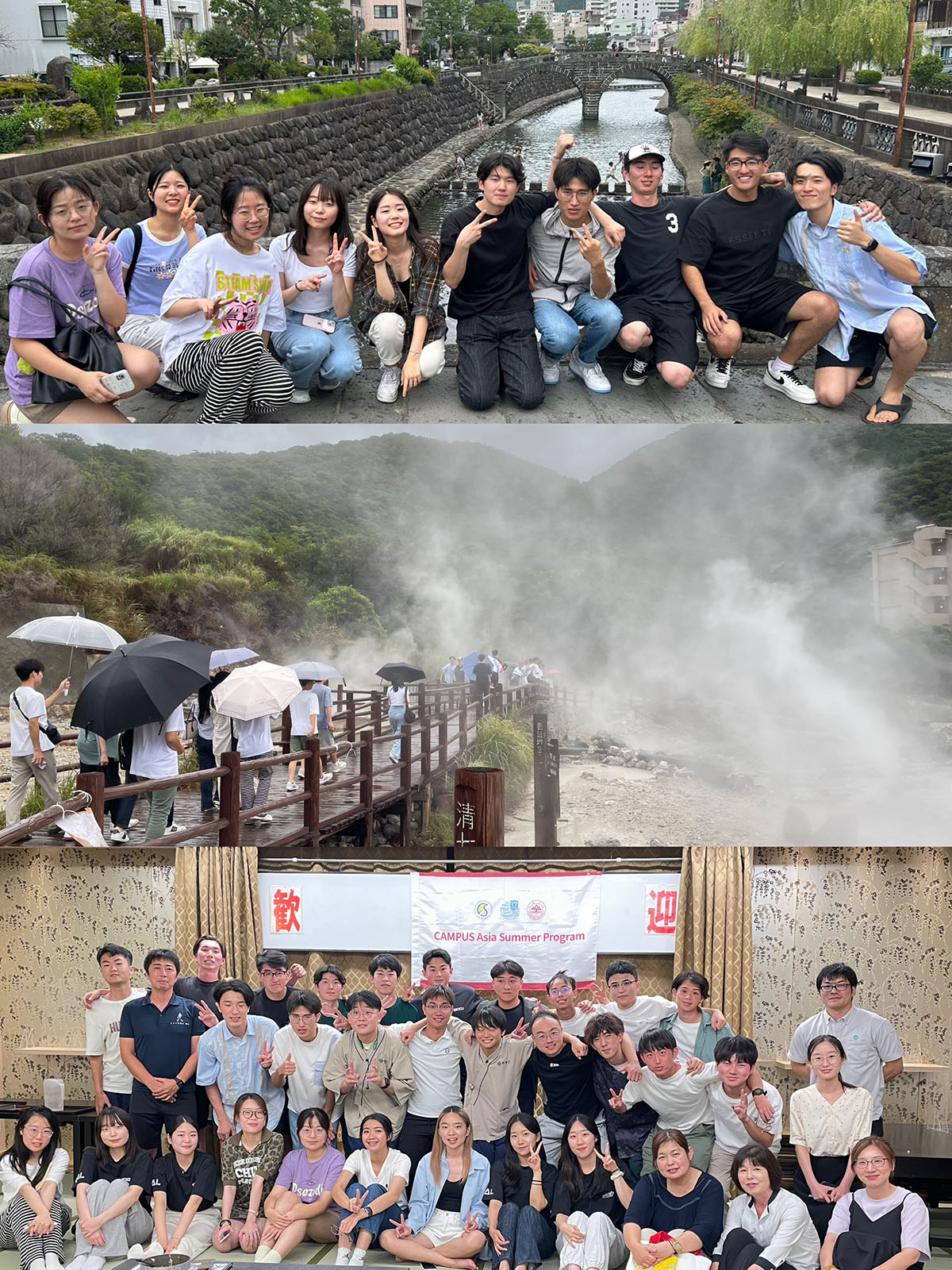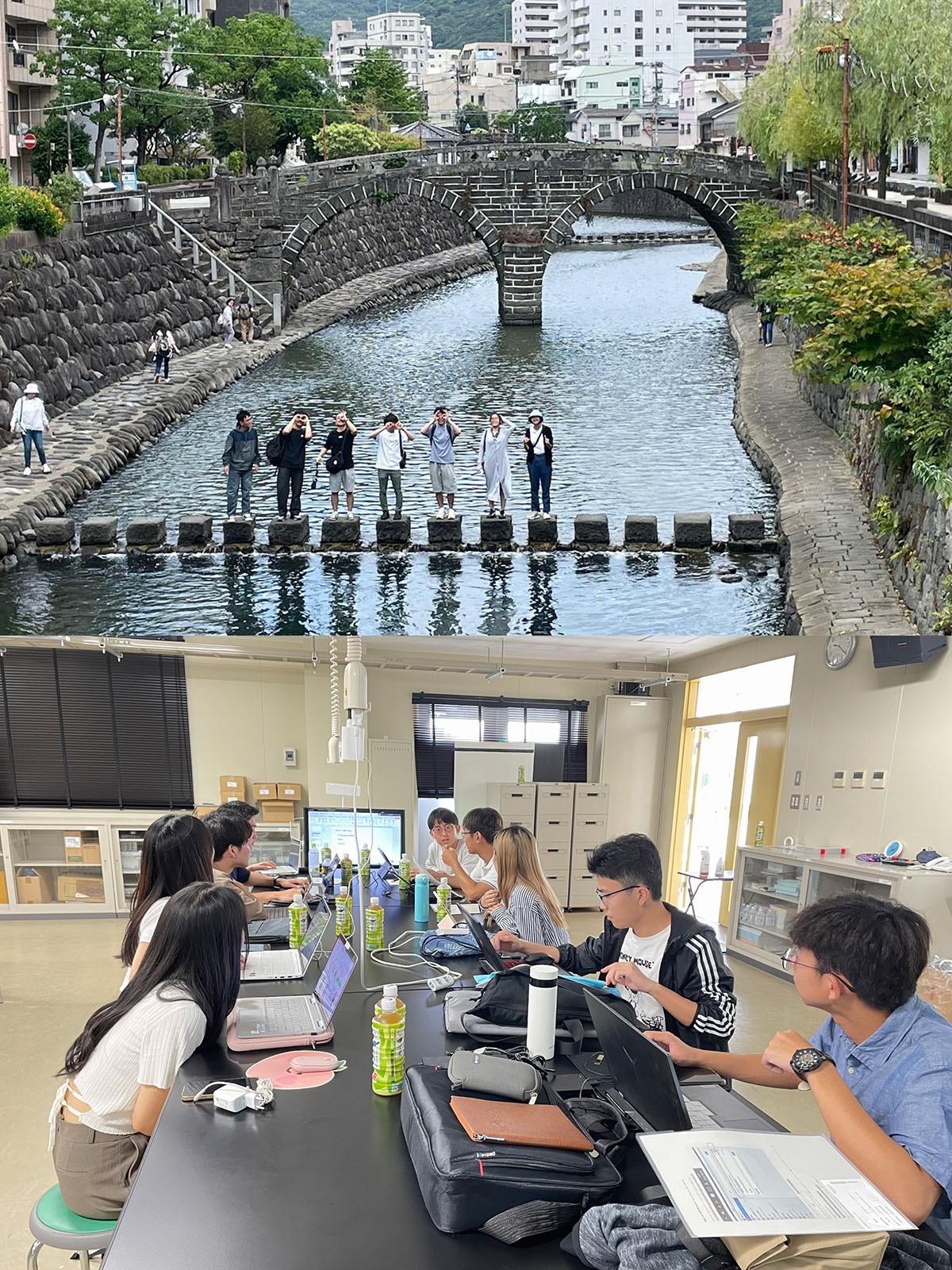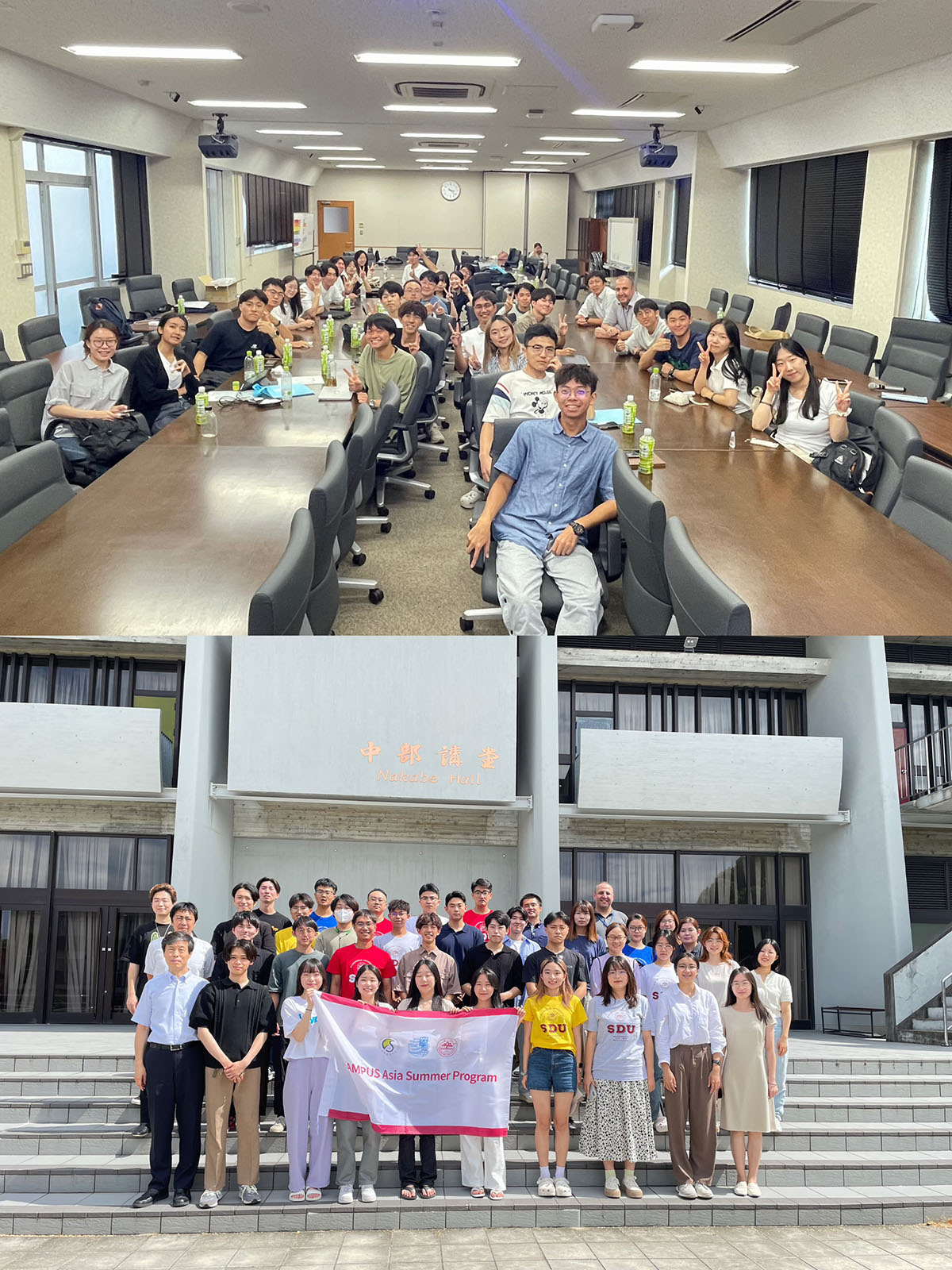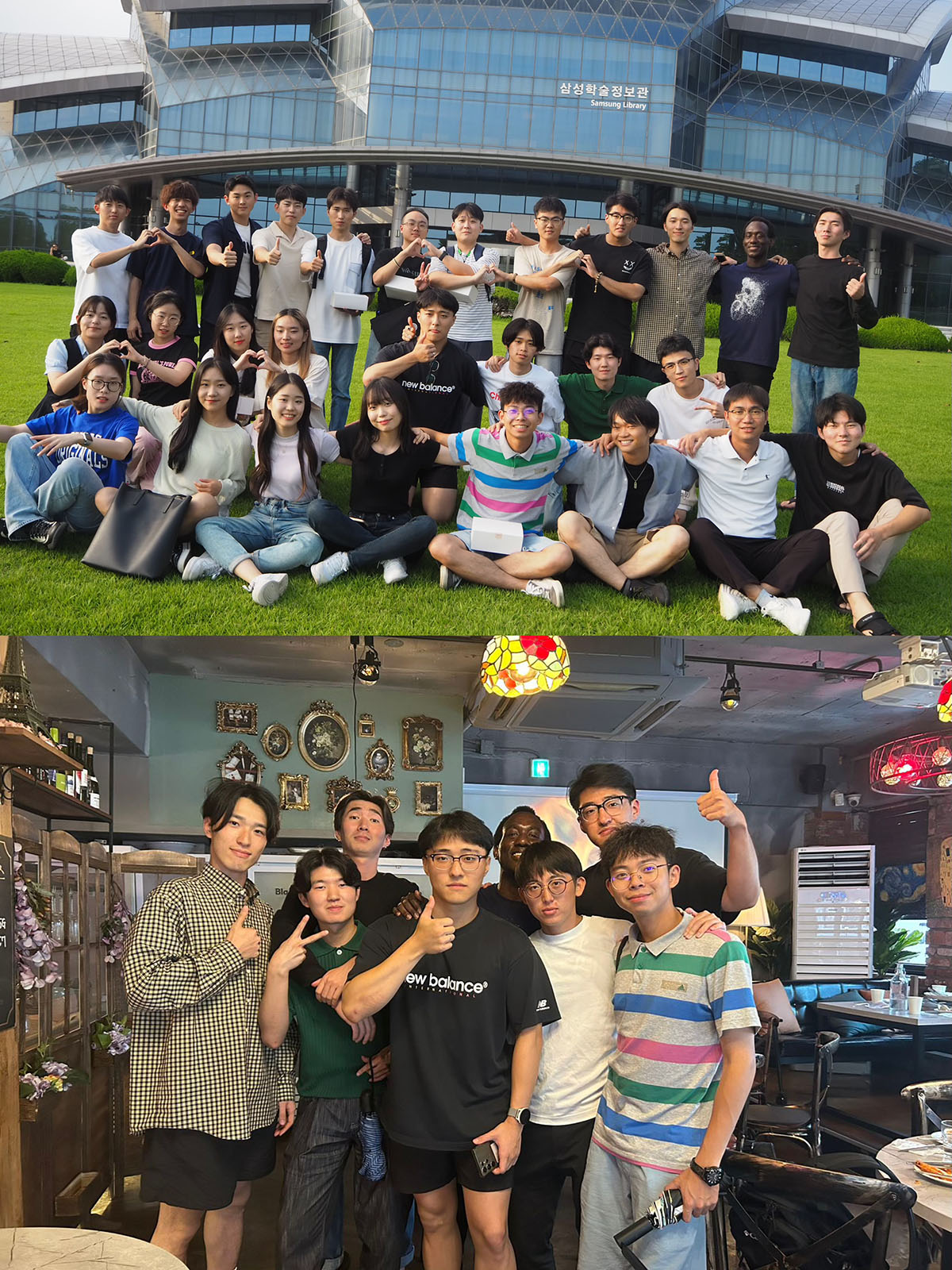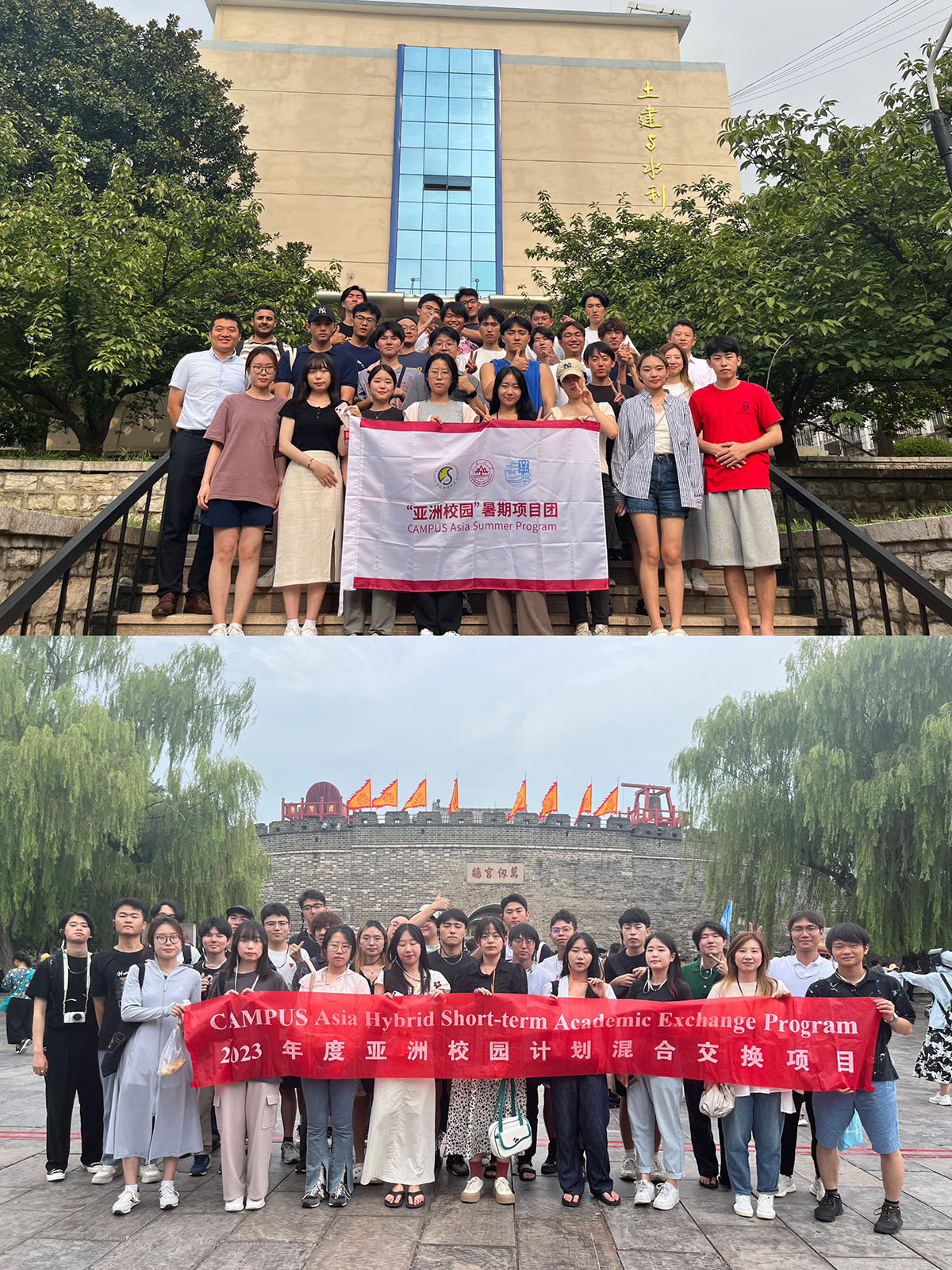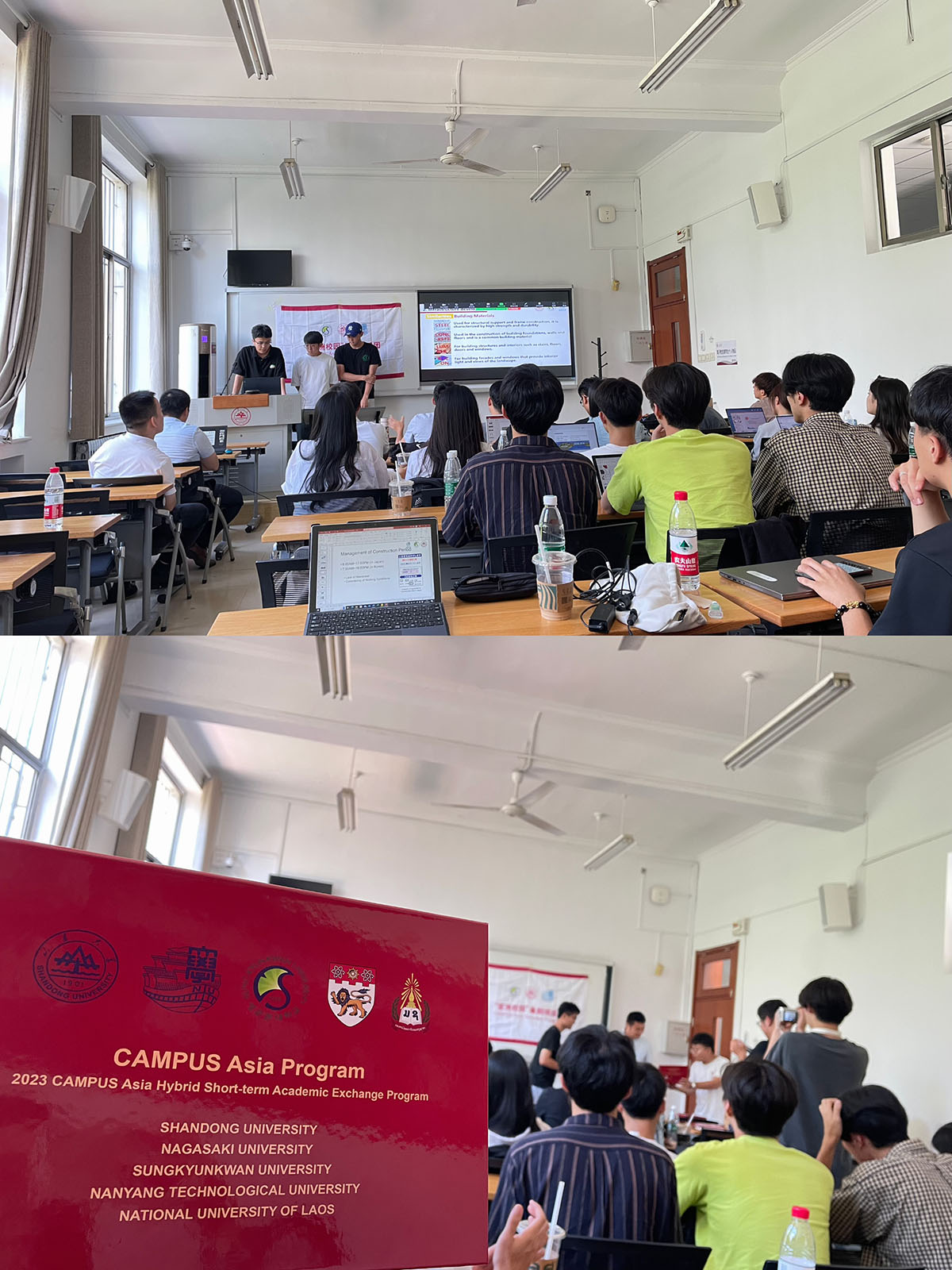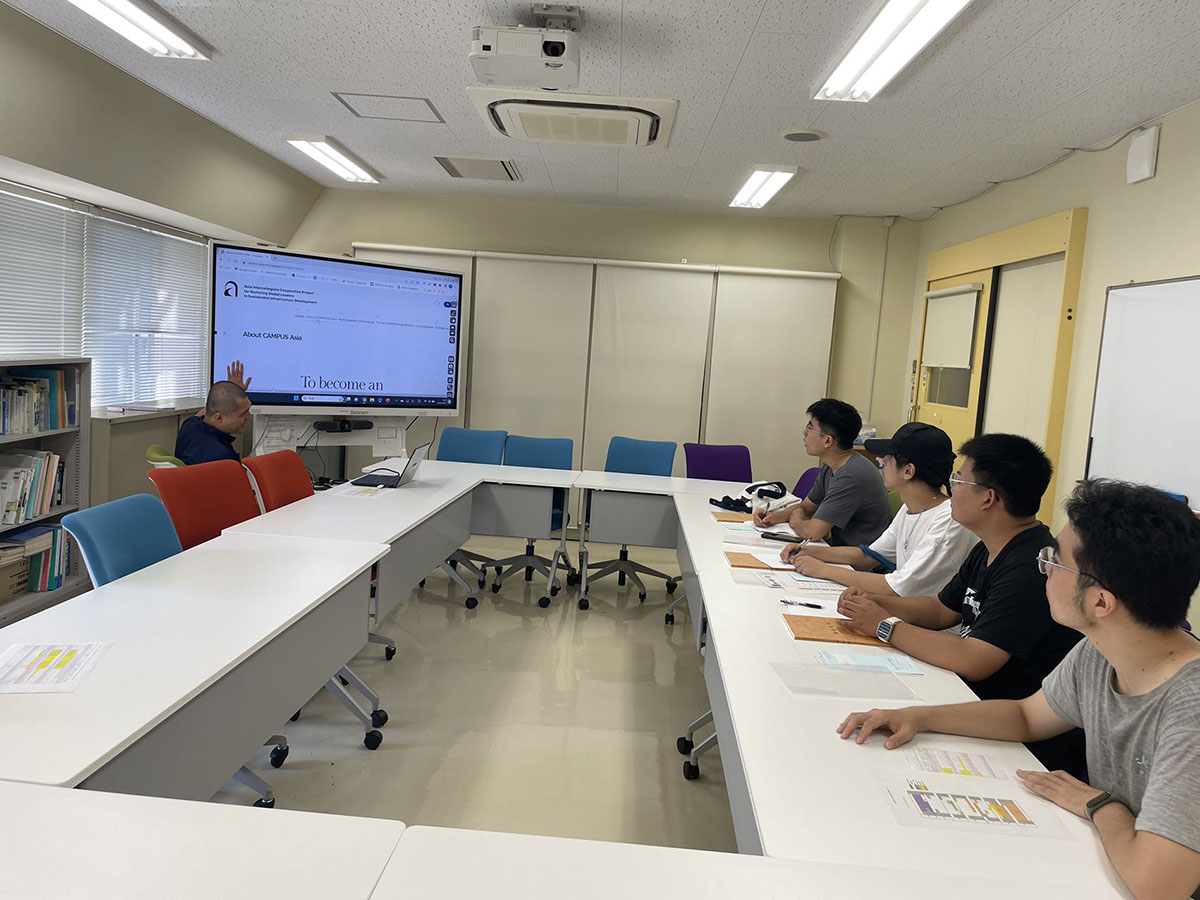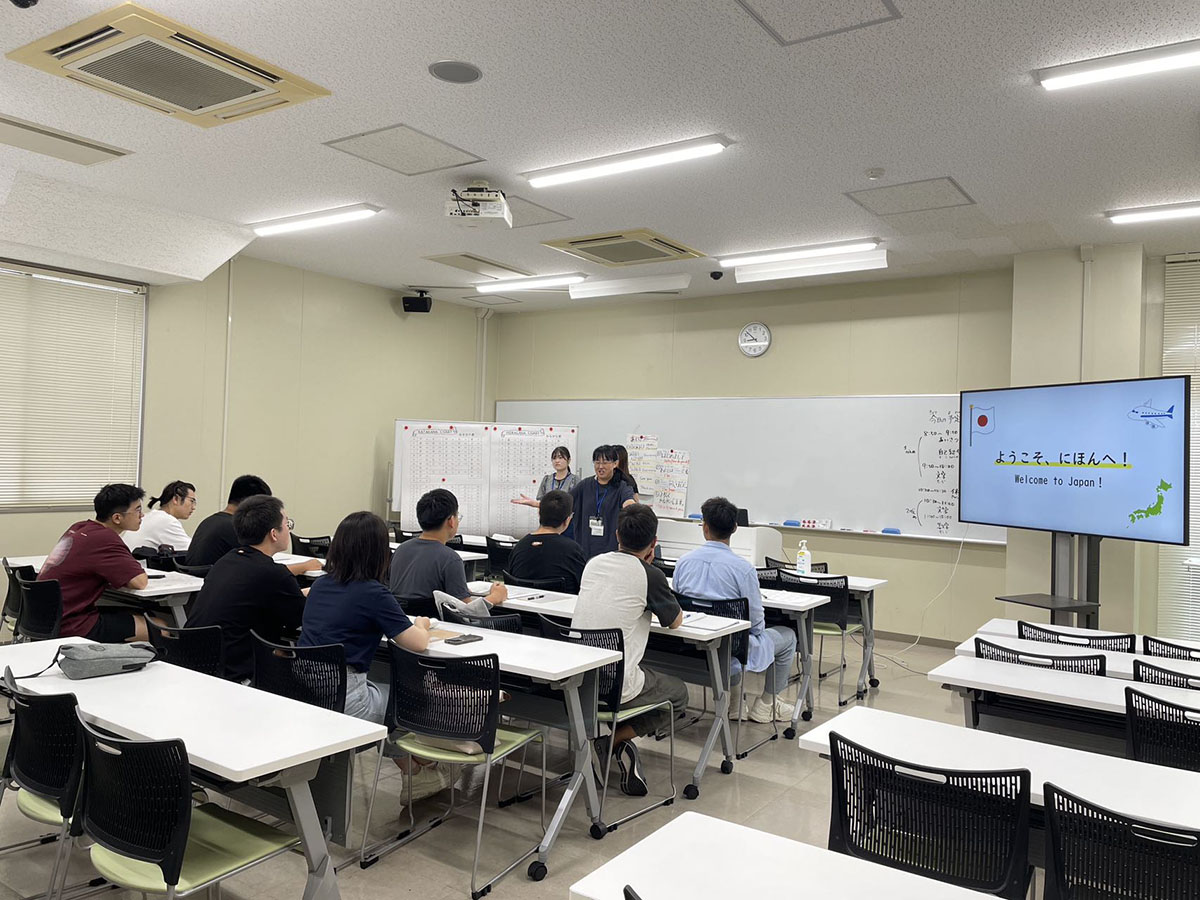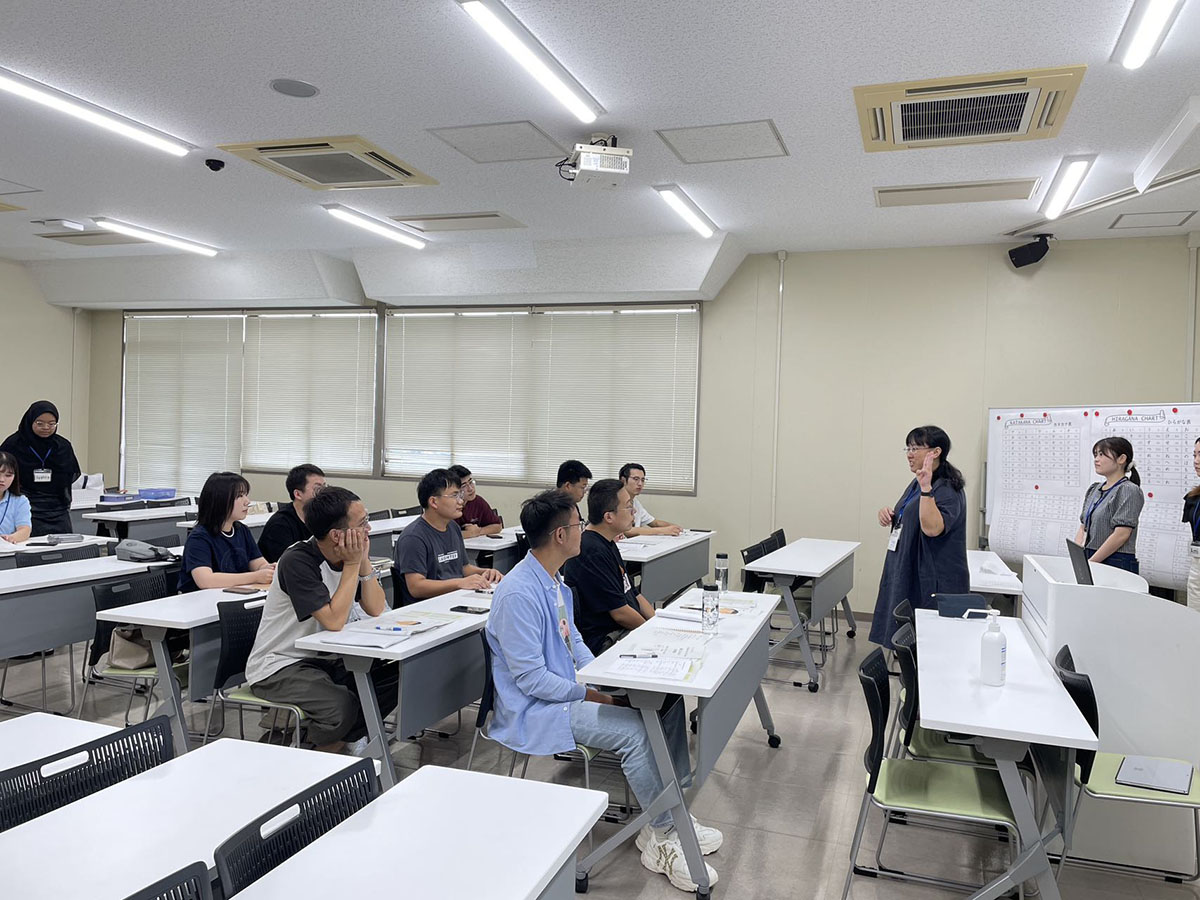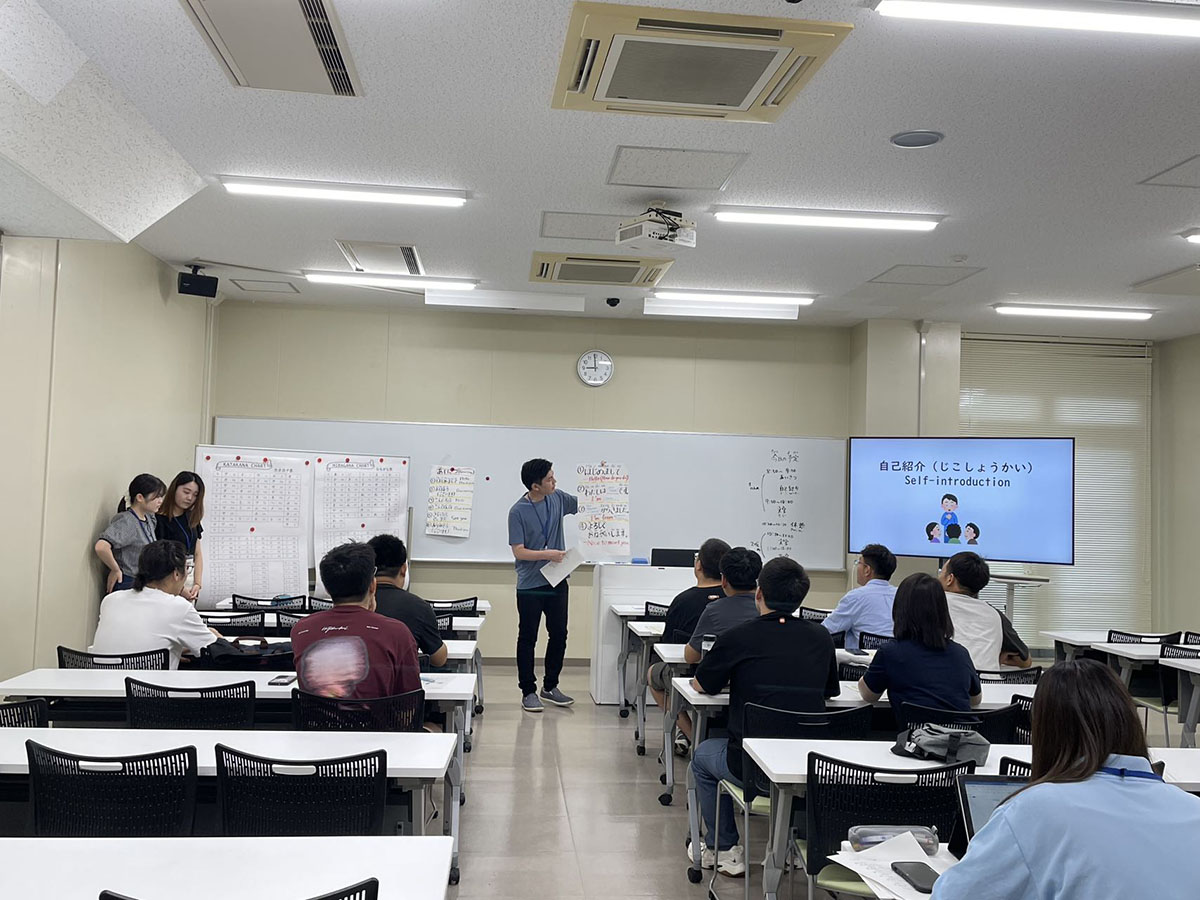Hosted by Shandong University (China) in collaboration with Nagasaki University (Japan), Sungkyunkwan University (Korea), Nanyang Technological University (Singapore), and National University of Laos (Laos), the “Hybrid Short-Term Academic Exchange Program 2023” was conducted both online and in-person from July 15 through August 23, 2023. The number of participating students totaled to 28, including eleven from Shandong University (School of Civil Engineering, School of Qilu Transportation, and School of Environmental Science and Engineering), eight from Nagasaki University, eight from Sungkyunkwan University, and one from National University of Laos.
This program is one of the main features of Campus Asia Project, which deepens students’ insight into different cultures and other countries’ infrastructures through an academic exchange program that combines online study and actual travel abroad. In the first half of the program from July 15 to August 6, online lectures were delivered by faculty experts of the sustainable social infrastructure development in China, Japan, Korea and Singapore. Then, students actually traveled abroad to continue the second half of the program from August 6 to August 23, 2023. They visited Nagasaki University, Sungkyunkwan University, and Shandong University in sequence. Visiting multiple destinations is one of the unique benefits that the program offers.
From August 6 through 10, program delegates (eight students from Sungkyunkwan University, eight students and one staff member from Shandong University, and one student from National University of Laos) stayed in Nagasaki. Japanese students and eight alumni members from the second mode of Campus Asia Project had volunteered to support in planning and organizing the student-oriented program. It consisted of a special lecture on infrastructure, Japanese language lessons, lectures on Japanese history and culture, as well as group-working sessions. While acquiring specialized knowledge in the current status of infrastructure maintenance in Japan, the students enjoyed multicultural experience and got familiar with other participants and alumni members. Students from Nagasaki University took the leadership in the local city tour, visiting cultural and infrastructure-related sites in Nagasaki. Unfortunately, due to the typhoon, they had to cancel the visit to Mt. Unzen and Disaster Memorial Hall, but they had a great opportunity to experience Japanese culture and understand the social background of infrastructure development/maintenance in Japan.
Next, delegates (eight students and one staff member from Nagasaki University, and eleven students and one staff member from Shandong University) traveled to Korea to visit Sungkyunkwan University from August 11 to August 15. As part of a site tour of infrastructure-related facilities, the students visited the Sihwa Lake Tidal Power Station. For the cultural experiences, they went on tour around Seoul’s ancient palace, Gyeongbokgung, and Bukchon Hanok Village which is known for traditional Korean style buildings. They also enjoyed the view from Namsan Seoul Tower, which helped them understand how the city has been developed, and visited some facilities within Sungkyunkwan University campus. The students were eager to learn about different cultures during their study abroad and actively interacted with students participating in Campus Asia Project, gaining valuable experiences.
Finally, delegates (eight students and one staff member from Nagasaki University, and eight students from Sungkyunkwan University) visited Shandong University, the host university of the program this year. At Shandong University, in addition to Chinese language and culture class, students attended professional lectures on civil engineering, irrigation engineering, and geotechnical engineering which were conducted based on the combined technical and practical expertise actually applied in China, Japan and Korea. A unique cultural program was also organized to visit Shandong University Museum, Chinese Traditional Culture Experience Center, Shandong Museum, and Temple and Cemetery of Confucius and the Kong Family Mansion in Qufu, which facilitated deeper understanding of the history of Shandong University and its influential educational philosophy. Furthermore, visit to the Jinan Metro construction site and laboratories served as a great opportunity for students to enhance their knowledge in their professional field and gain insights into the future with a clearer understanding of the similarities and differences in the basic process of infrastructure construction among the three countries.
In the afternoon of August 22, group-work and presentation sessions were conducted, with online and offline participants and representatives from Japan, China and Korea. Students shared their experience and lessons learned through this hybrid program. After reviewing all individual and group presentations, one group and six members were selected and awarded with certificates.
This hybrid program was certainly a wonderful experience for participating students. A survey is being conducted, of which results will be posted on the website in a timely manner. It is hoped that these students will be further engaged in other programs, i.e., the “Hybrid Short-Term Exchange Program,” “ASEAN Expanded Short-Term Exchange Program,” and “Japan-China-Korea Double Degree Program” in the future.
